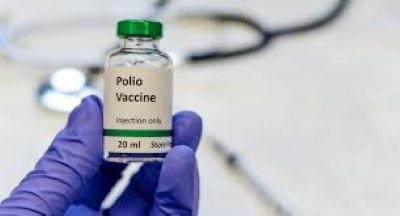UNICEF has started a new vaccination program in Nigeria. It will focus on giving children the Measles-Rubella (MR) vaccine along with the polio vaccine. The campaign will take place in all 36 states of the country.
Rahama Farah, head of UNICEF’s Kano Field Office, said the campaign will happen in two phases. It will begin on Monday, October 6, 2025, and end on Friday, February 13, 2026.
Farah spoke in Katsina on Tuesday, September 23, during a media event organized by UNICEF and the Katsina State government about the joint polio and MR vaccination campaign.
He said that Katsina State will carry out the vaccination campaign from October 6 to 13, 2025. However, he added that while progress has been made, the goal of stopping the spread of the polio virus in Katsina has not been reached yet.
Farah explained that Katsina reported two cases of a variant of the polio virus in Danmusa LGA in 2025. In 2024, there were 17 cases across eight LGAs, including eight cases in Batsari LGA.
He also mentioned that 20 out of 34 local government areas (LGAs) in the state are facing security problems, which affects the vaccination campaign.
With only two months left to meet their target, UNICEF is asking the Katsina government to take specific steps: The State Task Force on Immunisation should meet regularly and on time. LGA chairmen should personally monitor the campaign before and during the vaccination period, and lead daily review meetings in the evenings.
Farah said Katsina has received 3,698,500 doses of a new type of oral polio vaccine (nOPV2). These will be given to 2.3 million children under five through a method called Directly Observed Oral Polio Vaccination (DOOPV).
He also said that 4.8 million children aged 9 months to 14 years will be vaccinated against measles and rubella during this campaign.
To carry out the vaccination, 2,253 teams will be sent out. They will work at both fixed locations and temporary sites from October 4 to 13, 2025.
From October 6 to 10, 2025, 5,584 teams will offer regular immunization services and other vaccines. These teams include:
3,761 teams going door-to-door, 993 teams working at transit points, and 830 teams at fixed posts.
UNICEF has trained 3,300 health workers to improve their communication and interaction skills. They have also trained 600 teams called Non-Compliance Resolution Teams (NCRTs) to help convince families who refuse vaccination.
200 of these NCRTs will work during the campaign. Each team will have a community leader, a traditional leader, and a vaccinator. They will help solve problems with vaccine refusal in real time during the campaign.
UNICEF has also helped Katsina State deploy:
6 state-level facilitators, 21 facilitators at the LGA level, 462 voluntary ward supervisors, and 4,647 voluntary community mobilisers to support the campaign.
In addition, all 34 LGA chairmen and 70 district heads have been involved in the polio campaign. They have signed a declaration to show their support for immunisation.
Dr. Shamsuddeen Yahaya, the head of Katsina State’s Primary Health Care Agency, also spoke at the event. He said that many cases of rubella have been found in the state, even though they have not been officially reported. He sees this campaign as a great chance to protect children.
He added that during this period, they will also run their regular polio campaign, targeting children from birth to 59 months old.


